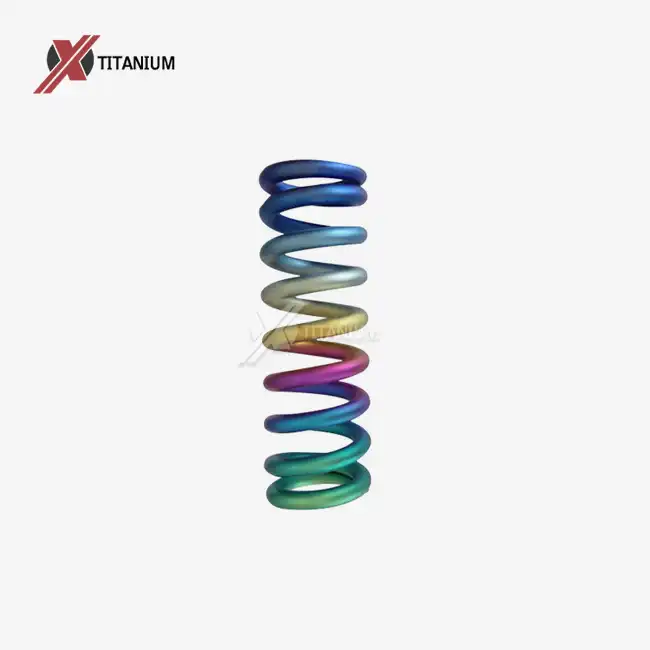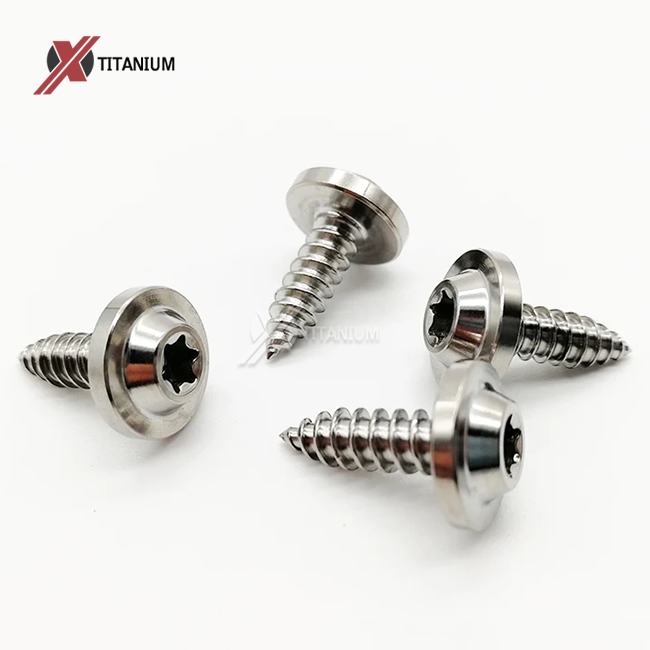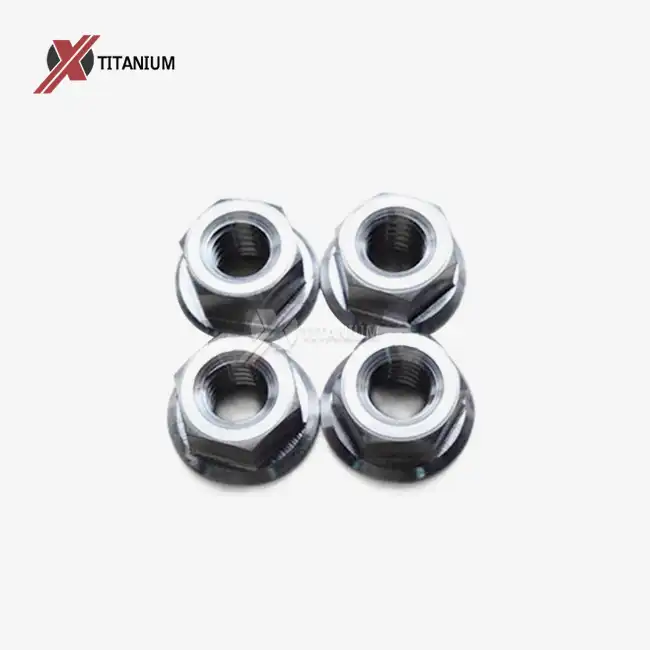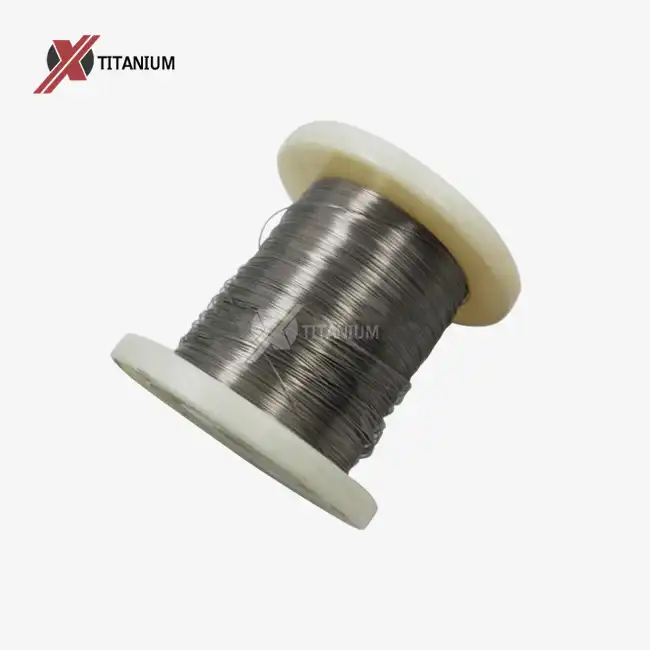The Unique Properties of Titanium Micro Screws
Unparalleled Strength-to-Weight Ratio
Titanium micro screws boast an impressive strength-to-weight ratio, a characteristic that sets them apart from other fastening solutions. This property allows for the creation of lightweight yet robust components, crucial in industries where every gram matters. The aerospace sector, in particular, benefits from this attribute, as it enables the construction of fuel-efficient aircraft without compromising structural integrity.
The molecular structure of titanium alloys contributes to their exceptional strength. When alloyed with elements like aluminum and vanadium, as in the case of Ti-6Al-4V (Grade 5), the resulting material exhibits even greater tensile strength. This enhanced durability ensures that titanium micro screws can withstand significant loads and stresses, making them ideal for applications where failure is not an option.
Corrosion Resistance in Harsh Environments
One of the most valuable properties of titanium micro screws is their outstanding corrosion resistance. Titanium naturally forms a protective oxide layer when exposed to air or water, creating a barrier against corrosive agents. This self-healing characteristic allows titanium fasteners to maintain their integrity in environments that would quickly degrade other materials.
In marine applications, where exposure to saltwater is constant, titanium micro screws prove their worth. Unlike stainless steel, which can suffer from pitting corrosion in chloride-rich environments, titanium remains unaffected. This resistance extends to various chemicals, acids, and bases, making these screws suitable for use in chemical processing plants and other industrial settings where corrosive substances are prevalent.
Biocompatibility for Medical Applications
The biocompatibility of titanium micro screws opens up a world of possibilities in the medical field. The human body readily accepts titanium, rarely causing allergic reactions or rejections. This property makes titanium micro screws an excellent choice for orthopedic implants, dental prosthetics, and other medical devices that require long-term integration with living tissue.
In high-stress environments within the body, such as load-bearing joints or dental implants, titanium micro screws demonstrate their durability. They resist degradation from bodily fluids and maintain their structural integrity over extended periods. This longevity reduces the need for revision surgeries and improves patient outcomes, showcasing the importance of material selection in medical engineering.
Performance in Extreme Conditions
Withstanding High Temperatures
Titanium micro screws exhibit remarkable performance under extreme temperature conditions. The melting point of titanium (1,668°C or 3,034°F) is significantly higher than that of many other metals used in fasteners. This high heat resistance allows titanium screws to maintain their mechanical properties in environments where other materials would fail or deform.
In aerospace applications, where components are subjected to rapid temperature fluctuations and extreme heat, titanium micro screws prove invaluable. They retain their strength and dimensional stability, ensuring critical connections remain secure during the intense heat generated by jet engines or atmospheric reentry. This thermal stability also makes them suitable for use in high-temperature industrial processes, where conventional fasteners might lose their integrity.
Resistance to Fatigue and Stress
The fatigue resistance of titanium micro screws is another crucial factor in their durability. In high-stress environments where cyclic loading is common, these fasteners demonstrate superior endurance. The unique crystalline structure of titanium alloys allows for better distribution of stress, reducing the likelihood of crack initiation and propagation.
This property is particularly beneficial in applications such as automotive racing, where components are subjected to constant vibration and high-frequency stress cycles. Titanium micro screws can withstand these conditions without succumbing to fatigue failure, ensuring the reliability and safety of critical assemblies. Their ability to maintain strength under repeated loading also makes them ideal for use in long-term implantable medical devices, where failure could have severe consequences.
Performance in Cryogenic Applications
At the other end of the temperature spectrum, titanium micro screws excel in cryogenic environments. Unlike some materials that become brittle at extremely low temperatures, titanium retains its ductility and toughness. This characteristic is crucial in applications such as space exploration, where components must function reliably in the cold vacuum of space.
In liquefied natural gas (LNG) processing plants, where temperatures can drop to -162°C (-260°F), titanium micro screws maintain their structural integrity. Their resistance to thermal contraction and expansion helps prevent leaks in critical connections, ensuring the safety and efficiency of cryogenic systems. This versatility across a wide temperature range further underscores the adaptability of titanium micro screws in diverse high-stress environments.
Innovations in Titanium Micro Screw Manufacturing
Advanced Machining Techniques
The production of titanium micro screws has been revolutionized by advancements in machining technology. Computer Numerical Control (CNC) machining allows for unprecedented precision in crafting these miniature fasteners. This level of accuracy is crucial when dealing with the tight tolerances required in aerospace and medical applications.
Electrical Discharge Machining (EDM) has also played a significant role in improving the manufacturing process. This technique enables the creation of complex geometries and internal features in titanium micro screws that would be challenging or impossible with traditional machining methods. The result is a new generation of fasteners with optimized designs for specific high-stress applications, further enhancing their durability and performance.
Surface Treatments and Coatings
Innovative surface treatments have further enhanced the durability of titanium micro screws. Anodizing, for instance, not only improves corrosion resistance but also allows for color coding, which can be crucial in complex assemblies. Nitriding processes create a hard, wear-resistant surface layer, extending the lifespan of these fasteners in abrasive environments.
Advanced coatings, such as Diamond-Like Carbon (DLC), can be applied to titanium micro screws to reduce friction and improve wear resistance. These coatings are particularly beneficial in applications where the screws are subject to frequent adjustment or removal, as they help maintain the integrity of the fastener and the mating surface over multiple use cycles.
Quality Control and Testing
Ensuring the reliability of titanium micro screws in high-stress environments requires rigorous quality control measures. Non-destructive testing methods, such as X-ray inspection and ultrasonic testing, are employed to detect any internal defects that could compromise the screw's performance. These techniques allow manufacturers to guarantee the structural integrity of each fastener without sacrificing it in the testing process.
Simulated environment testing is another critical aspect of quality assurance. Titanium micro screws are subjected to conditions that mimic their intended use, including extreme temperatures, corrosive substances, and cyclic loading. This comprehensive testing regime ensures that the screws will perform as expected in real-world high-stress scenarios, providing confidence to engineers and end-users alike.
Conclusion
Titanium micro screws have proven to be exceptionally durable in high-stress environments, thanks to their unique combination of properties and advanced manufacturing techniques. Their unparalleled strength-to-weight ratio, corrosion resistance, and biocompatibility make them indispensable in a wide range of demanding applications. From the depths of the ocean to the vacuum of space, these miniature marvels continue to push the boundaries of what's possible in fastener technology.
For those seeking high-quality titanium micro screws or other titanium products for their high-stress applications, Baoji Chuanglian New Metal Material Co., Ltd. offers expert solutions. With over a decade of experience in titanium product manufacturing and research, they are well-equipped to meet the most demanding requirements. For more information or to discuss your specific needs, please contact them at info@cltifastener.com or djy6580@aliyun.com.




